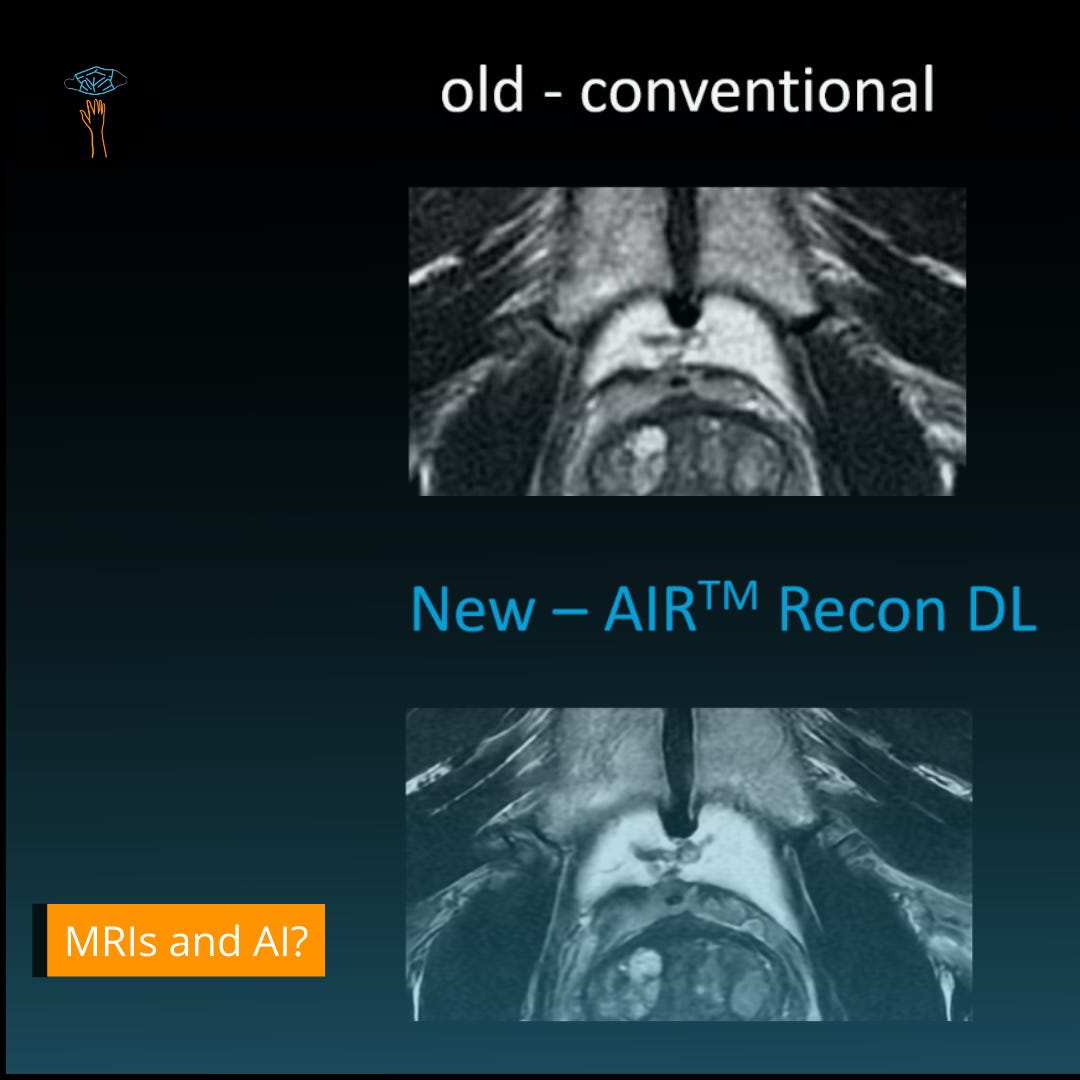AI-Powered MRI's Will Be Cheaper and More Accurate
FDA clears AI-driven MRI software and HHS invests millions in public health
HHS invests $266 million in public health
On Friday, the U.S. Department of Health and Human Services (HHS) awarded more than $266 million in American Rescue Plan funding to grow the community and public health workforce. This funding was awarded through two different grants, one for community health worker training and the other for public health scholarships. The educational and non-profit institutions that received these funds will use them to train the community and public workforce of the future.
"The Biden-Harris Administration is committed to building a robust health workforce to make communities healthy,” said HHS Secretary Xavier Becerra. "Patients depend on community and public health workers for care and medical information. These investments will equip community and public health workers with the skill sets needed to provide effective community outreach, increase access to care, and assist individuals with critical prevention and treatment services.”
The HHS has awarded a total of $225.5 million to different institutions as part of the Community Health Worker Training Program. Community health workers serve in a spectrum of roles, all intended to benefit the community. They can also be known as promotores de salud, community health advisors, outreach workers, patient navigators and peer counselors. These health workers live and work within a community, linking its members to the health resources that are available to them. In a time when trust in health institutions is at an all-time low following the COVID-19 pandemic, the friendly face of a community health worker can be crucial in convincing a person to take actions necessary for their health. The training of an estimated 13,000 new community health workers that this grant money will fund will be essential in continuing the countries’ recovery from COVID-19 and mitigating any future public health emergencies.
The HHS has also awarded $40.7 million to 29 grantees through the Public Health Scholarship Program, which will incentivize individuals to pursue higher-level training in public health, including as epidemiologists and other positions critical to community public health needs. This program will build public health workforce capacity in cities and states across the country.
Lists of award recipients for each program are linked below. If you are interested in a career in public health, then these programs may be a good choice for you.
Using AI in MRI
MRIs are used to image the soft tissue in the body so that doctors can find and diagnose issues that otherwise can not be detected by other techniques. MRIs are commonly used for looking at tumors, blood vessels, internal organs and the brain. They can produce high resolution images of the body’s soft tissue which allows doctors to ‘look’ inside the body in a non-invasive way. A key challenge with MRIs is their cost though, these are very expensive machines and an MRI can cost around $1300. MRI scans also take very long to complete with scan times ranging from 15-90 minutes which also makes them quite expensive.
GE healthcare recently received clearance from the FDA to start using a new AI driven imaging software which can reduce scan times by almost 50%. The software is able to produce higher resolution images with less scans and therefore reduce the amount of time needed on an MRI machine. Additionally, combining this with an older software development that GE made in the past, they can now image moving tissue such as the heart. Their MRI machines can also better account for patient movements which has historically been a problem in MRIs and a reason why many scans have to be redone.
These changes are software based and can be applied to existing MRI machines. They will help increase the capacity of MRI machines and allow more patients to use it each day. This is a positive improvement for MRI machines and will hopefully make them more accessible and allow for a more accurate diagnosis.
Featured Fake News

This tweet and a couple others have recently been circulating claiming that a California law now gives courts the right to take away custody from parents for minors who are seeking gender affirming care. Gender affirming care is care given to people who identify differently from their gender assigned at birth to help them better support and affirm their current gender identity. It has been shown to decrease rates of depression, anxiety and suicidal ideation.
The law in question SB107, is not meant to take away custody away from parents who have minors seeking gender affirming care but it says that California courts have the jurisdiction to hear cases that involve custody battles as a result of gender affirming care being provided.
Several states have passed laws that ban gender affirming care for minors and in many such states, courts can take away custody from parents. The California bill says that courts should consider what the out-of-state laws are before they give up their jurisdiction over such a case and hand it to a court in a different state. The bill applies to care given in the state of California and does not take away custody from parents nationwide if their minors seek gender affirming care.
The bigger goal of the bill is to not participate in prosecuting people from other states who seek care that is legal in California and it protects California healthcare providers from divulging information to other states that are attempting to prosecute out-of-state parents who are seeking gender affirming care in California.
What is gender affirming care?





